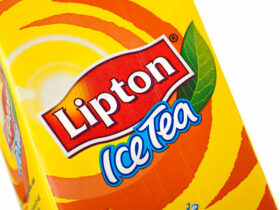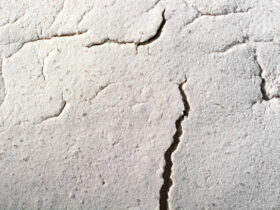Introduction
Ever stumbled across a word that makes you tilt your head and think, “Wait—what’s that supposed to mean?” That’s exactly the vibe Xuebaotou gives off. It’s one of those intriguing terms that sound almost mystical, like it’s carrying a hidden story waiting to be unraveled. But here’s the catch: Xuebaotou isn’t just a quirky word floating around—it’s wrapped in layers of cultural whispers, modern interpretations, and a good dose of speculation.
So, what makes Xuebaotou stand out? Why has it caught the attention of curious minds across the globe? And, more importantly, how can we make sense of it without drowning in vague explanations? Buckle up, because we’re diving deep into the heart of this fascinating concept.
What Exactly Is Xuebaotou?
To begin, let’s break it down. The word Xuebaotou itself sounds like something pulled straight from folklore or maybe even a piece of poetic imagery. While the term doesn’t pop up in traditional dictionaries with a neat little definition, it carries an aura of symbolism that begs to be explored.
-
Possible Cultural Roots: The syllables suggest a Chinese origin, where words are often packed with metaphorical weight.
-
A Sense of Rarity: “Xue” often relates to “snow” in Mandarin, symbolizing purity, clarity, or even rarity.
-
Imaginative Connotations: Combined together, Xuebaotou paints a picture that could range from a snow-covered peak to a character out of a myth.
What’s fascinating is that Xuebaotou doesn’t sit neatly in one box—it feels like it belongs to multiple narratives at once.
The Symbolism Behind Xuebaotou
You might wonder, “Why all the fuss over a single word?” Because language isn’t just about labels; it’s about stories, emotions, and the way we see the world.
Snow as a Metaphor
Snow has always symbolized something more than frozen water. It’s associated with:
-
Fresh starts: The clean slate after a snowfall.
-
Silence and serenity: That muffled quiet you feel when snow blankets the earth.
-
Fragility: Beautiful yet fleeting.
If Xue does indeed tie back to snow, then Xuebaotou could embody this delicate blend of purity and impermanence.
Baotou as a Character or Place
Now here’s where it gets interesting. Baotou is an actual city in Inner Mongolia, known for its industry and cultural heritage. Pairing “snow” with “Baotou” could hint at either a literal reference (snow in Baotou) or a figurative one (a poetic symbol for something rare and transformative in a gritty landscape).
Put together, Xuebaotou might represent contrast—the blend of natural purity with industrial grit.
Why Does Xuebaotou Matter Today?
We live in a world where unique words catch fire faster than you can refresh your social feed. Just think of terms like “serendipity” or “sonder”—obscure at first, but now beloved worldwide.
Xuebaotou fits perfectly into this trend because:
-
It’s Memorable: Strange enough to stick in your brain.
-
It’s Versatile: Can be tied to cultural identity, personal expression, or even creative branding.
-
It’s Aesthetic: Let’s face it, it just looks and sounds cool.
And isn’t that half the battle when a word travels across borders?
Modern Uses and Interpretations of Xuebaotou
The modern imagination doesn’t just sit around—it reinvents. People have begun using Xuebaotou in creative ways, some literal and others more abstract.
In Literature and Storytelling
Writers sometimes invent or revive unusual words to add richness to their narratives. Xuebaotou, with its layered connotations, could serve as:
-
A mysterious character’s name.
-
A place hidden in snowy mountains.
-
A metaphor for something rare and fragile.
In Branding and Creativity
Brands often chase names that sound unique yet memorable. Xuebaotou could easily lend itself to:
-
A niche tea shop specializing in rare blends.
-
An indie fashion label emphasizing minimalism.
-
A creative digital platform aiming to stand out in the noise.
In Personal Identity
For individuals looking for usernames, pen names, or even spiritual symbols, Xuebaotou offers that sweet spot between mystery and meaning.
The Psychology of Strange Words
Ever noticed how words we don’t fully understand spark more curiosity than those we do? There’s a psychology behind this.
-
Novelty effect: Our brains light up at something unfamiliar.
-
Sense of belonging: Using a rare word feels like joining a secret club.
-
Emotional trigger: Exotic terms often make us feel like we’re touching something deeper.
That’s why Xuebaotou, despite its elusive meaning, feels so powerful. It doesn’t hand you answers—it invites you to make your own.
What Can Xuebaotou Teach Us?
Instead of just treating Xuebaotou as a quirky curiosity, let’s ask: what lessons does it carry?
-
The Power of Language
Words don’t need to be universal to be meaningful. Sometimes the most impactful terms are the ones that challenge us. -
The Beauty of Mystery
In a world addicted to instant answers, it’s refreshing to sit with uncertainty. Xuebaotou reminds us that mystery has value. -
Personal Interpretation
Because its definition isn’t pinned down, Xuebaotou becomes a mirror—you project onto it what matters most to you.
FAQs About Xuebaotou
Q1: Is Xuebaotou a real place?
Not exactly, but the word Baotou refers to a city in Inner Mongolia. The full term Xuebaotou might poetically reference snow in that region or something entirely different.
Q2: Is there an official definition of Xuebaotou?
No official dictionary entry exists. It’s more of a cultural or symbolic expression that sparks interpretation.
Q3: How do people use Xuebaotou today?
It shows up in creative spaces like literature, branding, art, and online identities.
Q4: Why is Xuebaotou gaining attention?
Its uniqueness, mysterious charm, and adaptability make it appealing in an age where people crave fresh expressions.
Q5: Can I use Xuebaotou as a brand or username?
Absolutely. In fact, that’s one of the most creative ways to give this term a modern life.
Conclusion
Xuebaotou isn’t just a word—it’s a canvas. A mystery that refuses to be neatly boxed up. It’s rare, it’s poetic, and it’s oddly captivating. Whether you see it as snow touching an industrial city, a character out of legend, or simply a term that looks cool on paper, Xuebaotou proves one thing: language isn’t always about strict definitions. Sometimes, it’s about the stories we build around it.
So the next time you come across a word like this, don’t rush to Google for answers. Let the mystery breathe. Let it mean something personal. Who knows—you might just find a little piece of yourself in Xuebaotou.








Leave a Reply